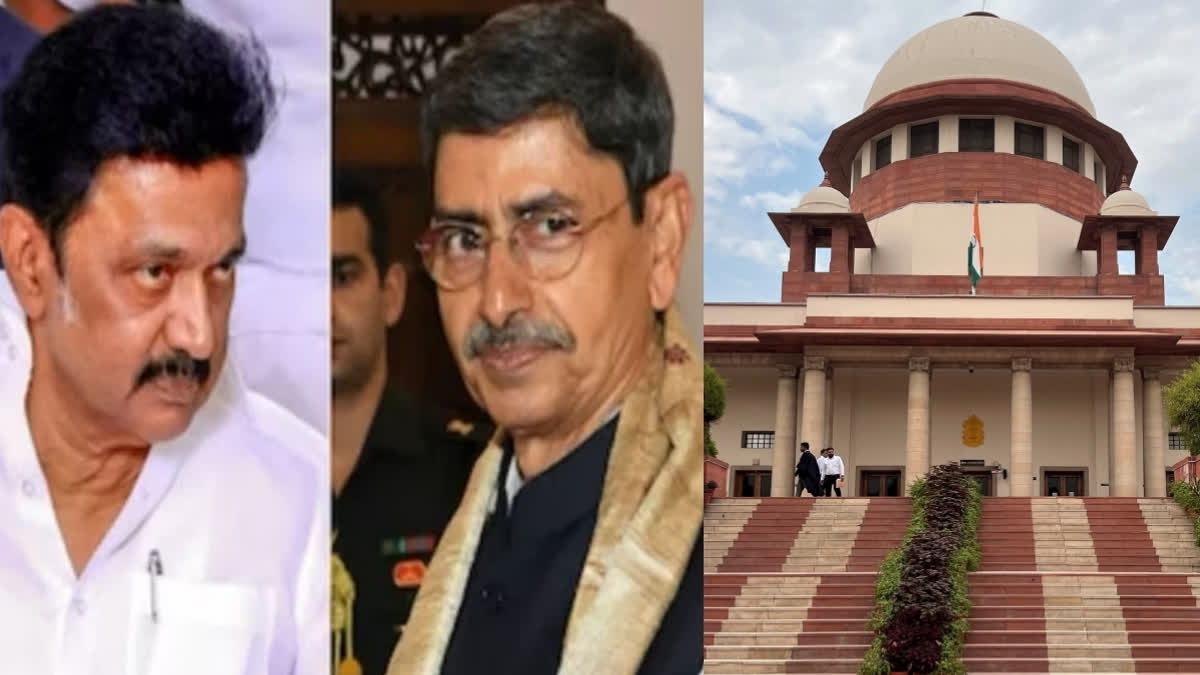New Delhi: The Supreme Court Wednesday said it doesn’t want to issue an injunction order against the President if the bills have already gone to her while urging the Tamil Nadu chief minister MK Stalin and Governor RN Ravi to have a dialogue to resolve the deadlock over the passing of the bills.
A bench led by Chief Justice of India D Y Chandrachud and comprising justices J B Pardiwala and Manoj Misra was hearing a writ petition filed by the Tamil Nadu government against the governor for delay in granting assent to the bills passed by the legislative assembly.
The CJI said the business of the government has to go on and the business of governance has to go on. Attorney General (AG) R Venkataramani said in the case of West Bengal, "I did advise the governor and he called the chief minister and they had a fruitful discussion in the past couple of weeks and things are moving."
Senior advocate A M Singhvi, representing the Tamil Nadu government, said that he is appearing in the West Bengal matter as well and “let us see the result…”. Singhvi urged the bench to maintain the status quo so that the President does not act on the bills in the meantime. Singhvi said, “Let us not have a precipitation by saying now, next time we come the president has passed or rejected. Let there be a status quo”.
The CJI said: “Dr Singhvi, we don’t want to pass an injunctive order against the President of India... Suppose, it is gone to the president, we don’t want to injunct the President of India. It doesn’t look proper….if it is already gone to the President, what do we do now.". The CJI asked the AG to look into the matter and said, "We are trying to find out a way”.
During the hearing, Singhvi suggested that the matter be adjourned till January since a detailed hearing is necessary on the constitutional question of whether the governor can refer bills to the President after they have been re-passed by the legislature.
In the previous hearing, the apex court had observed that the governor cannot refer the bills to the President after withholding assent over them. The apex court had pointed out that the governor only had three options as per Article 200 - granting assent, withholding assent, or referring to the President- and that after exercising any of these options, he cannot exercise another option.
Singhvi insisted that this was purely a constitutional question that this court had to decide. The CJI said: "We will do what we have to do in this matter but in the meantime why don't they meet? There must be some channel open between the CM and the governor. At least let them start talking to each other...”
After hearing submissions, the apex court has scheduled the matter for further hearing in January 2024. On December 1, the apex court was informed that the Tamil Nadu governor had referred the 10 bills re-adopted by the assembly to President Droupadi Murmu. Ravi earlier this month returned ten bills - two of which were passed by the earlier AIADMK government. The Tamil Nadu assembly then held a special session to re-adopt all ten bills, which were sent back to the governor for his assent.
Also read:



